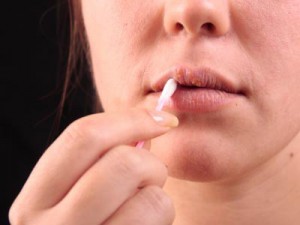
More evidence that low-calorie sweeteners are bad for your health
Studies show that artificial sweeteners can raise the risk of hypertension, metabolic syndrome, type 2 diabetes and heart disease, including stroke.

Although they can appear at any time, summer is the time when cold sores are most likely to trouble us.
After a long winter the immune system can be too weak to fight off challenges, and extra stress, for instance from increased UV radiation, can trigger cold sores around the lips and mouth.
These red blisters, sometimes called ‘fever blisters’ are caused by the herpes simplex virus type 1 (HSV type 2 is the cause of genital herpes). The HSV virus is carried by some 50% of the adult population. During the blistering stage, cold sores are extremely contagious and can be spread in saliva and by skin contact, especially where there is broken skin.
Once contracted, the virus can lie dormant for years. It usually surfaces when people are tired or stressed out and run down and, in some women, just before menstruation. It can also be triggered by food sensitivities, for instance foods rich in arginine (see below).
The first symptoms are usually pain or tingling around the mouth. There may also be fever, a sore throat or swollen glands in your neck and elsewhere. The sores mature they break open, leaking a clear fluid, then crust over. Left untreated they eventually – between a few days and a few weeks – disappear.
Treating them – conventionally or with natural remedies – can usually help them disappear a few days faster, and importantly can help with the pain and other symptoms as well. Using natural remedies means avoiding harsh chemicals (and contributing to viral resistance to drugs)and working with the body.
In the long term, you need to work to boost immunity (see our features on the Chinese Tonic Herbs and Best Herbal Remedies as well as our Healing with the Seasons series). In the short-term you can get quick relief by applying a dab of tea tree oil or a solution of the homoeopathic remedy Zinc sulph as soon as you first feel the characteristic tingling sensation.
Herbs
Aqueous extract of olive leaves (tinctura olea foliorum) applied to the cold sore, may help ease the pain of cold sores. You can also take olive leaf extract capsules to help boost immunity.
Melissa officinalis ointment is also effective.
Echinacea and garlic, taken internally, will increase resistance to infection.
Liquorice contains high levels of glycyrrhizic acid, which has a strong anti0viral action. There is evidence that applied to cold sores the liquorice extract can weaken the herpes virus and make it less active.
Homoeopathy
The choice of remedy depends on constitutional type and symptom picture. The following have all proved useful: Acidum nit; Acidum sulph; Arsenicum; Cantharis; Apis mellifica; Cornus circinata; Nat mur; Nepenthes distillatoria; Rhus tox; Sarsaparilla; Tellurium; and Urtica urens. If in doubt consult a homoeopathic practitioner for the best remedy
Essential oils
In addition to tea tree, lavender is a good choice to help heal blisters. Apply neat to the skin as needed. Hyssop, thyme ginger and especially chamomile essential oils have also been shown to be effective at combating the herpes virus.
Diet
Finally you might want to investigate any food sensitivities you may have as these can place a strain on your immune system. You could also try limiting foods that are high in arginine. These include nuts and seeds (most types), chocolate, coconut, cereal grains including white and whole wheat flour, dairy products, gelatine, meats (red and white), shellfish, oats, corn, soybeans. It is also found in smaller amounts in peas, non-toasted cereals, garlic, onions and ginseng. Keep your diet high in dietary fibre (not wheat bran) and drink plenty of water to aid elimination.

Please subscribe me to your newsletter mailing list. I have read the
privacy statement